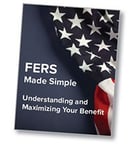Does FERS Include Locality Pay in the Annuity?
February 4th, 2021 | 1 min. read

You don’t need a math degree to understand how the FERS annuity retirement benefit is calculated. But it’s not simple arithmetic either. Because of the complexity, there is a lot of confusion about what factors count. One common example is locality pay.
The FERS basic benefit is based on years of service, salary (highest three consecutive years), a cost-of-living adjustment and a specific multiplier.
But that’s not all.
There are millions of federal employees across the world working and living in vastly different economic locations. A question we are asked regularly: Is my locality pay included in the FERS annuity calculation?
It's an important retirement planning question.
If you have asked that same question, here’s what you should know.
What is locality pay?
First, it helps to define locality pay.
Essentially, locality pay is an adjustment to your base pay that compensates you for higher living expenses in the area where you work. For example, someone who works in an extremely expensive city (ex., San Francisco) receives higher compensation than someone who works in a much more affordable location (ex., Omaha, Nebraska).
So, does FERS include locality pay in your annuity?
Yes, the locality pay adjustment is included as part of your base pay when calculating your annuity. There is no adjustment made to where you live after you are retired.
Although locality pay is part of the FERS annuity calculation, it’s not as big of a factor as other variables that go into the benefit formula.
Visit Advance Capital Management's FERS Retirement University to find more helpful articles covering FERS, federal government benefits, TSP investing and more.
A more important FERS annuity factor
What’s more important than locality pay is how your salary factors into the FERS benefit calculation. Remember, it is your top three consecutive years of pay from which the annuity is calculated. Those are not necessarily your last three years. Keep this in mind if you ever consider the ramifications of a late-career relocation on your retirement.
If you have any questions or would like some guidance from a financial adviser on what this means for you, schedule a free consultation today – we would love to help you.
Also, you can learn more about federal retirement benefits by downloading our free, easy-to-understand guidebook, FERS Made Simple: Understanding and Maximizing Your Benefit.
As a financial adviser, Kurt takes a comprehensive approach to help clients work toward their financial goals by providing wealth management tools including retirement planning, investment portfolio advice and tax strategies. He specializes in federal government benefits and is a Chartered Retirement Planning Counselor.


